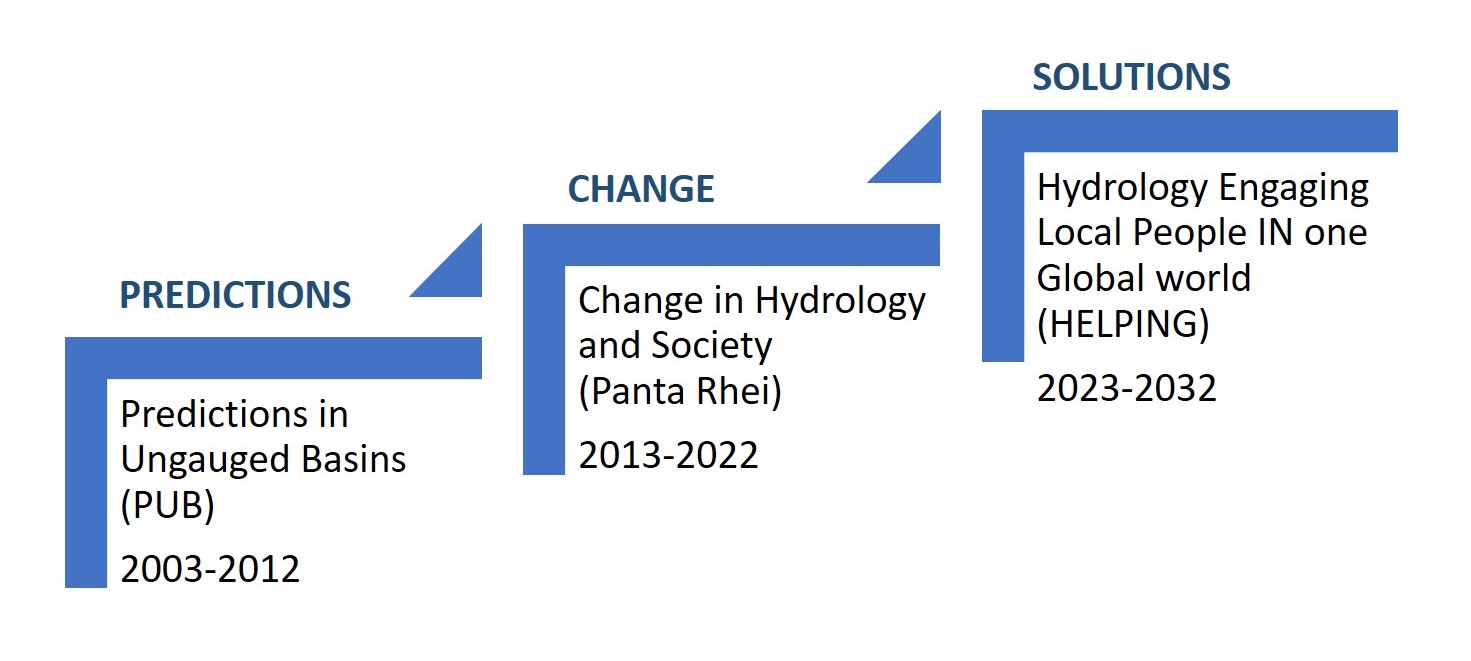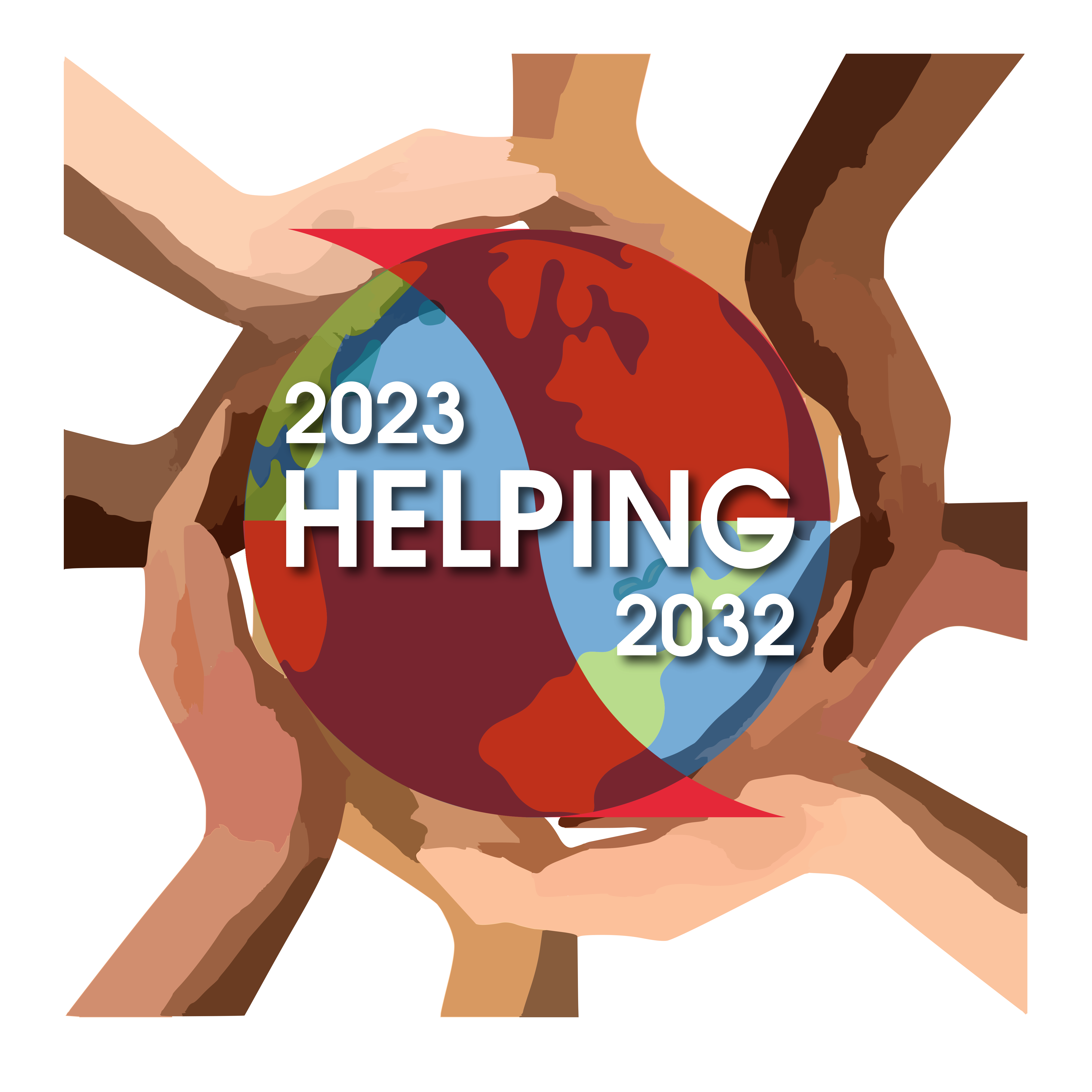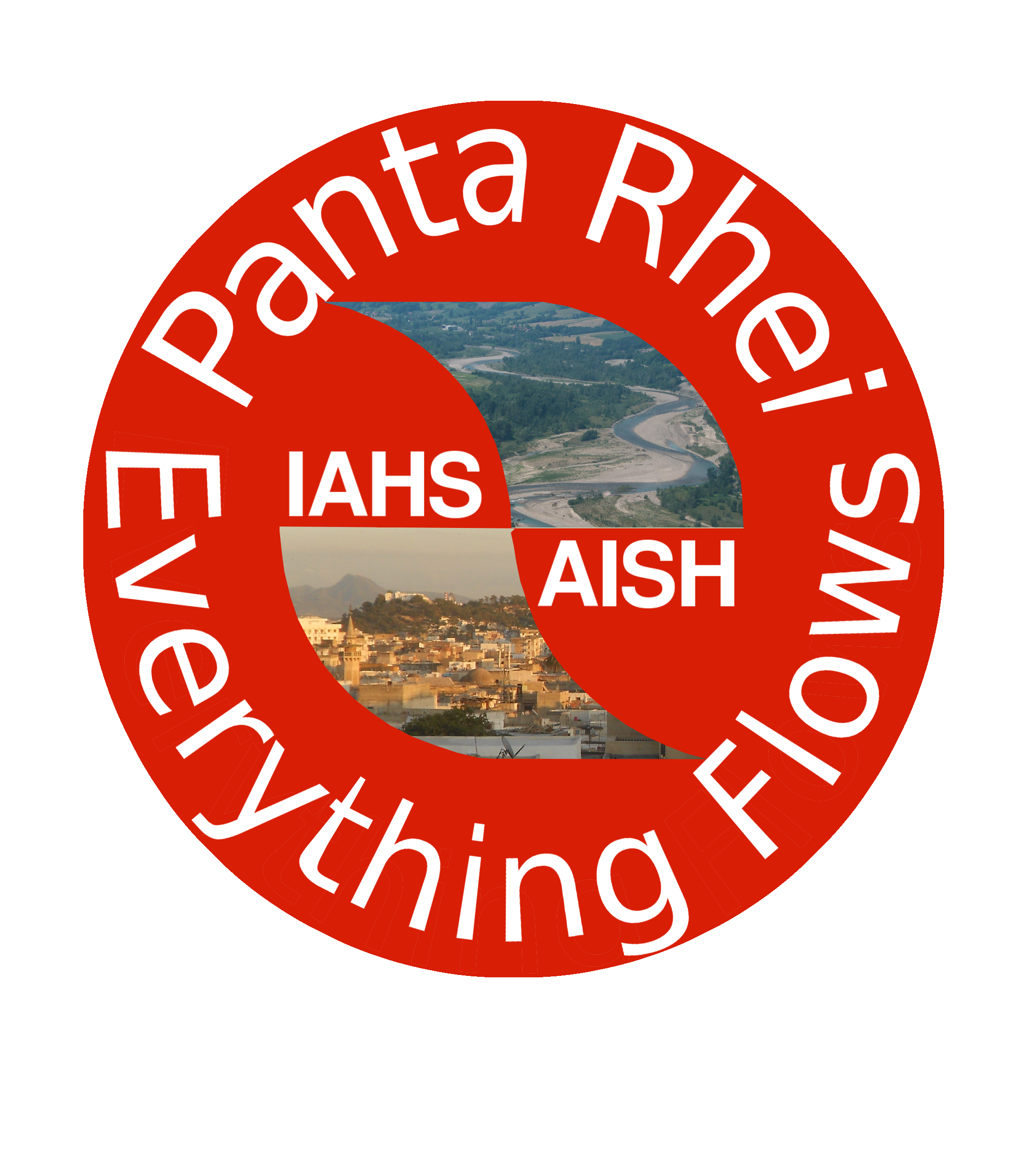IAHS Scientific Decades
IAHS has proudly and successfully coordinated two Scientific Decades, which, amongst other things, set the research agenda worldwide through collaborative forces. The overall aim with a scientific decade is to accumulate knowledge and streamline the efforts so that coherent engagement, sharing and focus accelerate scientific knowledge and understanding of a specific hydrological problem or phenomena. It stimulates vivid discussions between young and senior scientists globally.

If you're curious about the IAHS Scientific Decades and want to learn more, don't hesitate to get in touch with us. Our team is passionate about what we do, and we'd love to share the details with you. Just drop us an email at [email protected], and let's embark on this scientific journey together. Your quest for knowledge starts here!
3rd IAHS Scientific Decade 2023 - 2032: HELPING - Science for Solutions (Solutions)
The third Scientific Decade 2023–2032 of IAHS launches a topic for collaborative efforts in hydrological sciences: HELPING, created through a participatory community process and by applying strategic planning. The third IAHS Scientific Decade is dedicated to local solutions under the global water crisis. The name HELPING, stands for Hydrology Engaging Local People IN one Global world. This decade is a bottom-up process empowered by local hydrologists and scientists using open science and local data/methods when solving local water problems. We envisage that the building of local knowledge and cooperation will inform scientists working under similar situations or facing unexpected events worldwide. Read on here.
2nd IAHS Scientific Decade 2013 - 2022: Panta Rhei - Everything Flows: Change in hydrology and society (Change)
The second IAHS Scientific Decade 2013–2022 of IAHS, entitled “Panta Rhei – Everything Flows”, was dedicated to research activities on change in hydrology and society. The purpose of Panta Rhei was to reach an improved interpretation of the processes governing the water cycle by focusing on their changing dynamics in connection with rapidly changing human systems. Read on here.
The result of the IAHS Administrative Plenary vote held at IUGG Assembly in Berlin, July 2023, decided to implement a new International Commission on Human-Water Feedbacks (ICHWF). The motivation was to create a new IAHS International Commission to capitalise on the momentum of the scientific decade Panta Rhei – Change in Hydrology and Society that was closed during the Panta Rhei Symposium in Potsdam at 10-11 July 2023. Panta Rhei created a very active, young and diverse community of natural and social scientists. The new international commission will provide a home for this community within IAHS after the end of the scientific decade and will attract new people to IAHS in the field of Human-Water Feedbacks.
1st IAHS Scientific Decade 2003 - 2012: PUB - Predictions in Ungauged Basins (Predictions)
The first IAHS Scientific Decade 2003–2012 of IAHS, entitled Predictions in Ungauged Basins (PUB) was an IAHS initiative operating throughout the decade of 2003-2012, established with the primary aim of reducing uncertainty in hydrological predictions. It was a 'grass-roots' movement intended to engage the interest of hydrologists around the world, and grew to encompass an enormous variety of approaches and settings. Read on here.
The two most high impact outcomes of the PUB decade were a review paper and a synthesis book, both published in 2013. The review paper is entitled “A decade of Predictions in Ungauged Basins (PUB) - a review”, published in Hydrological Sciences Journal and authored by Hrachowitz et al.. It concludes that the PUB initiative was highly productive, as reflected in the literature review and the number of scientific publications that have cited PUB-related work. At the core of the scientific progress were seven achievements. The synthesis book is entitled “Runoff Prediction in Ungauged Basins - Synthesis across Processes, Places and Scales”, published by Cambridge University Press and authored by Blöschl et al.. It concludes that "Enhanced communication between disciplines, and people in different places, is the only way that hydrology as an earth science and as an applied science can benefit from its practice globally. For this, hydrology must become one truly global science, and comparative hydrology and the synthesis of the Newtonian and Darwinian worldviews will be the vehicles that will help achieve this."


